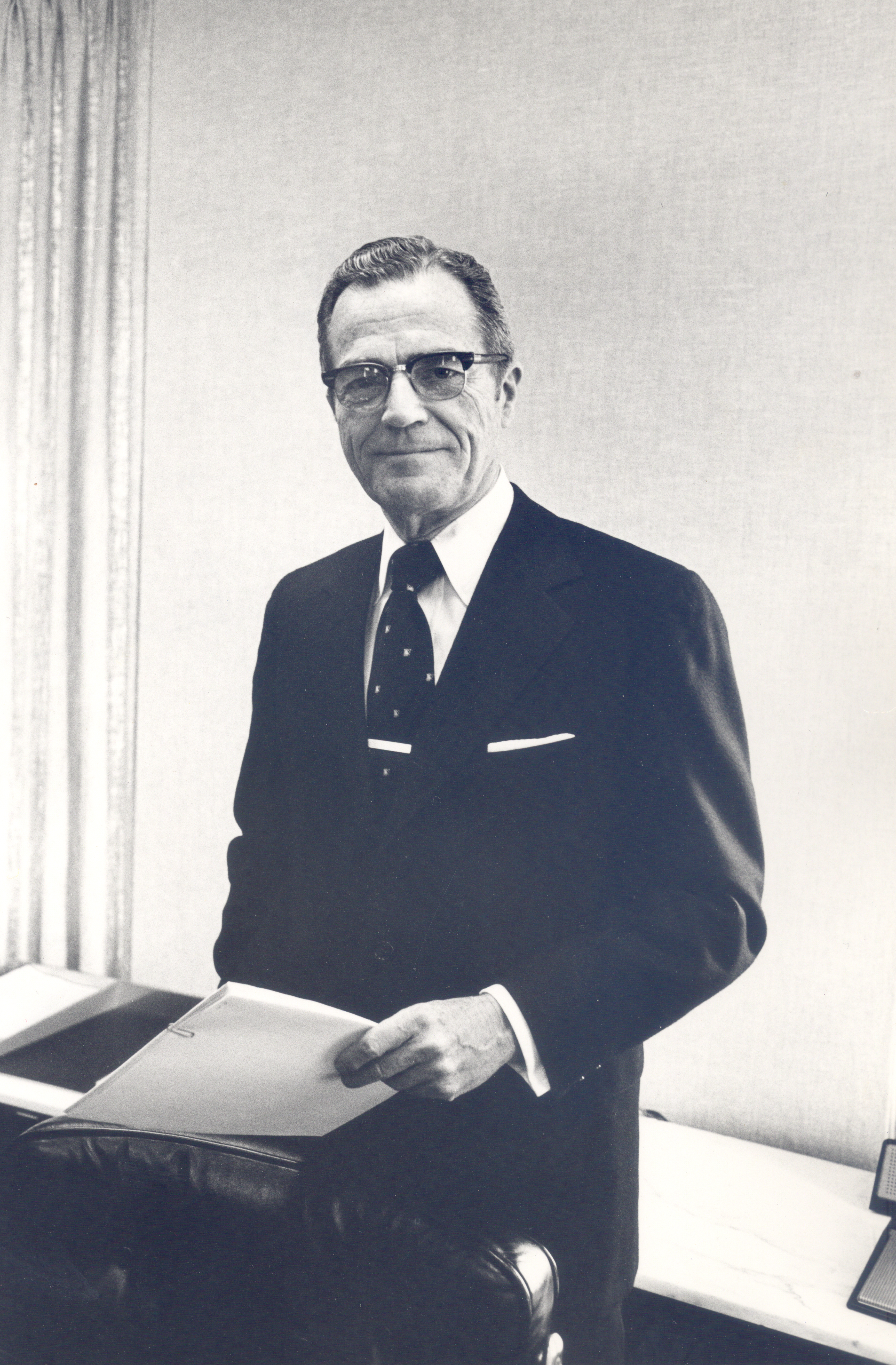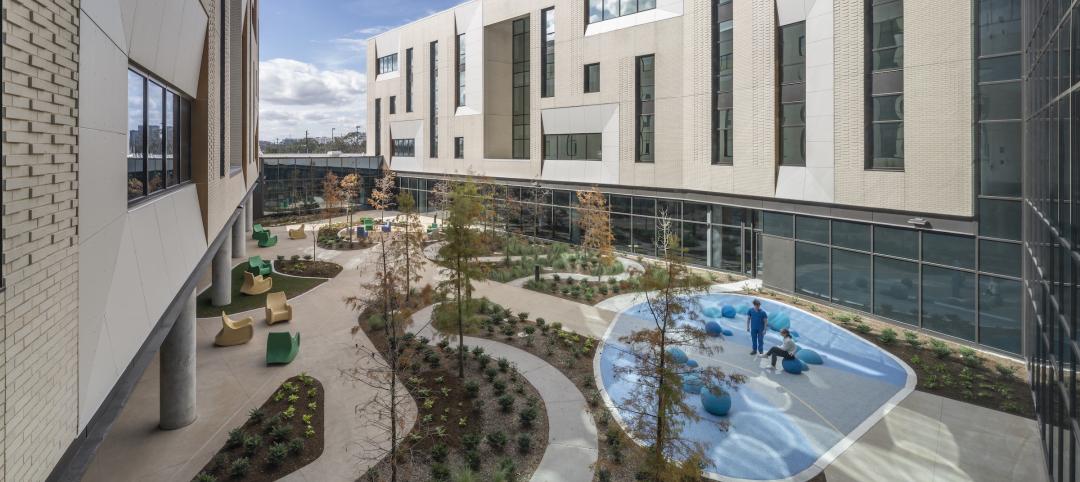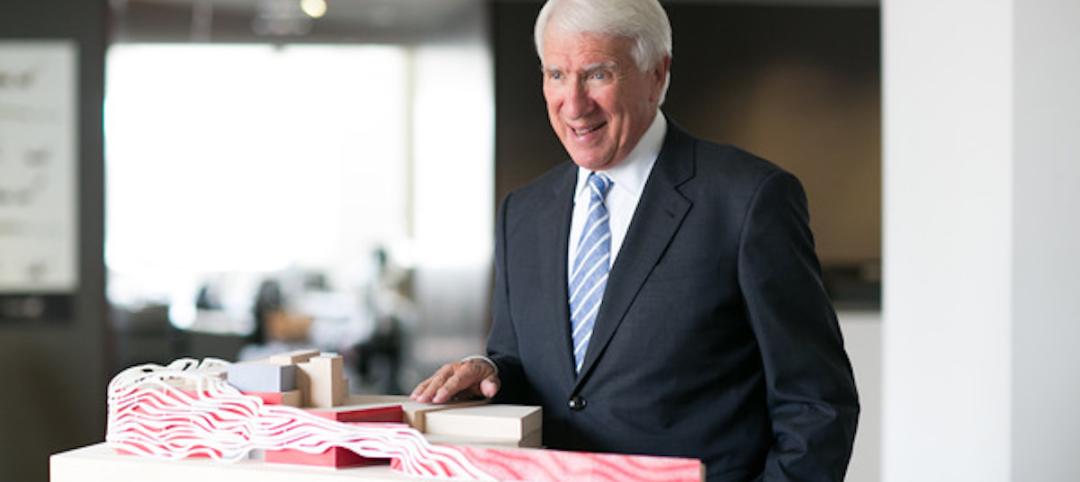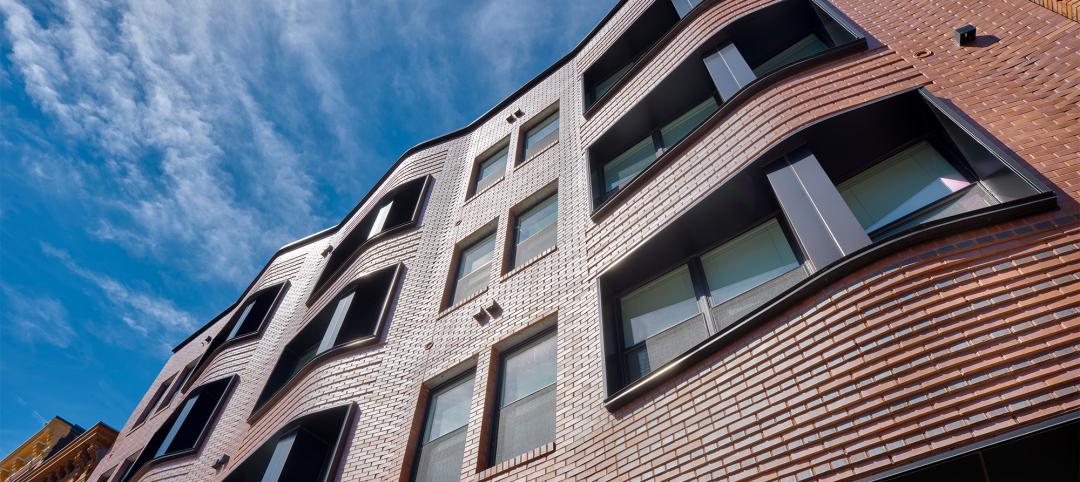Howard Sinclair Turner recently passed away after a short illness at Bryn Mawr Hospital at the age of 100. He was the last member of the founding Turner family to take the helm of the Turner Construction Co., one of the largest international construction management companies.
Turner Construction was founded in 1902 by Howard Turner’s uncle, Henry Chandlee Turner and quickly found its niche in the construction industry using the new material of reinforced concrete.
Born in Jenkintown, Pennsylvania in 1911, Howard Turner was the second of three sons of J. Archer Turner, Jr, who was President of the Turner Construction from 1941 to 1946. Howard graduated from Swarthmore College in 1933 and was subsequently elected an honorary member of Phi Beta Kappa. He completed a doctorate in organic chemistry and chemical engineering in 1936 from the Massachusetts Institute of Technology (MIT). He married Katharine (Kay) Swett, whom he met on a blind date, and they remained married until her death in 2003.
After graduating from MIT, Turner worked as a research chemist with the DuPont Corp. where he worked on novel uses, including for parachutes and food packaging, of a new synthetic material – nylon. He then joined Pittsburgh Consolidation Coal Co. in 1946 to lead their new research and development division. In 1954, Turner joined Jones & Laughlin Steel Co. as the vice president of research and development.
Turner joined the Board of Directors of Turner Construction in 1952. In 1965, he was selected to serve as President of Turner Construction. He served as President and Chief Executive Officer from 1968 to 1971. Turner served as Chairman of the Board from 1971 to 1978. From 1978 to 1982, he served as Chairman of the Executive Committee.
Under his leadership, the company grew from seven offices in the U.S. to operations in 20 cities; the company’s community affairs program was formalized and the Turner School of Construction Management for minorities and women was established; and the company’s international division was launched with operations in four countries. The company's sales grew from $591 million in 1965 to $1.7 billion by 1978.
Turner was also very active outside his responsibilities as the leader at Turner Construction. He served as a director of GAF, Teacher’s Insurance and Annuity Assoc., Ingersoll Rand, ASARCO, Dime Savings Bank of New York, and Jones and Laughlin. He was a trustee of the Wistar Research Institute, Swarthmore College, Rockefeller Institute, and Washington College. At the request of various administrations, he was a member of technical advisory committees for the Department of Commerce and the Post Office. Of note, he served on President Nixon’s Science Advisory Committee until it was dissolved when the members disagreed with the President in testimony before Congress. In 1966, he traveled with a delegation to Vietnam to develop a report on developing health, education, agriculture by President Johnson. He was elected to membership of the National Academy of Engineering in 1983, one of the proudest achievements of his remarkable career. Always quite humble about his scientific abilities, Turner’s view was that his greatest contribution was the ability to connect research with application.
Through the years of his marriage to Kay, they were inveterate travelers to Europe, Asia, Central and South America, and Australia. At the age of 82, he traveled to the North Pole on a nuclear-powered Russian ice breaker. He is survived by his three daughters, Susan Turner, a social worker of Boston, Holly Turner, a lawyer, (Don Carmichael) of Edmonton, Canada and Barbara Jean Turner, a physician-researcher, (Francisco Gonzalez-Scarano) of San Antonio, formerly of Wallingford and a Professor at the University of Pennsylvania, as well as seven grandchildren and four great grandchildren.
A Memorial Service after the manner of Friends will be held on Saturday, May 5th at noon at the Swarthmore Meeting House with a reception to follow. Donations in lieu of flowers can be made to the American Friends Service Committee or the Carter Center. BD+C
Related Stories
Multifamily Housing | Mar 14, 2023
Multifamily housing rent rates remain flat in February 2023
Multifamily housing asking rents remained the same for a second straight month in February 2023, at a national average rate of $1,702, according to the new National Multifamily Report from Yardi Matrix. As the economy continues to adjust in the post-pandemic period, year-over-year growth continued its ongoing decline.
Affordable Housing | Mar 14, 2023
3 affordable housing projects that overcame building obstacles
These three developments faced certain obstacles during their building processes—from surrounding noise suppression to construction methodology.
Healthcare Facilities | Mar 13, 2023
Next-gen behavioral health facilities use design innovation as part of the treatment
An exponential increase in mental illness incidences triggers new behavioral health facilities whose design is part of the treatment.
Student Housing | Mar 13, 2023
University of Oklahoma, Missouri S&T add storm-safe spaces in student housing buildings for tornado protection
More universities are incorporating reinforced rooms in student housing designs to provide an extra layer of protection for students. Storm shelters have been included in recent KWK Architects-designed university projects in the Great Plains where there is a high incidence of tornadoes. Projects include Headington and Dunham Residential Colleges at the University of Oklahoma and the University Commons residential complex at Missouri S&T.
Mixed-Use | Mar 11, 2023
Austin mixed-use development will provide two million sf of office, retail, and residential space
In Austin, Texas, the seven-building East Riverside Gateway complex will provide a mixed-use community next to the city’s planned Blue Line light rail, which will connect the Austin Bergstrom International Airport with downtown Austin. Planned and designed by Steinberg Hart, the development will include over 2 million sf of office, retail, and residential space, as well as amenities, such as a large park, that are intended to draw tech workers and young families.
Performing Arts Centers | Mar 9, 2023
Two performing arts centers expand New York’s cultural cachet
A performing arts center under construction and the adaptive reuse for another center emphasize flexibility.
Architects | Mar 9, 2023
HLW achieves Just 2.0 label for equity and social justice
Global architecture, design, and planning firm HLW has achieved The International Living Future Institute’s (ILFI) Just 2.0 Label. The label was developed for organizations to evaluate themselves through a social justice and equity lens.
Architects | Mar 9, 2023
A. Eugene (Gene) Kohn, Co-Founder of Kohn Pedersen Fox, dies at 92
A. Eugene (Gene) Kohn, FAIA RIBA JIA, Co-founder of international architecture firm Kohn Pedersen Fox, died today of cancer. He was 92.
Affordable Housing | Mar 8, 2023
7 affordable housing developments built near historic districts, community ties
While some new multifamily developments strive for modernity, others choose to retain historic aesthetics.
Architects | Mar 8, 2023
Is Zoom zapping your zip? Here are two strategies to help creative teams do their best work
Collaborating virtually requires a person to filter out the periphery of their field of vision and focus on the glow of the screen. Zoom fatigue is a well-documented result of our over-reliance on one method of communication to work. We need time for focus work but working in isolation limits creative outcomes and innovations that come from in-person collaboration, write GBBN's Eric Puryear, AIA, and Mandy Woltjer.

















